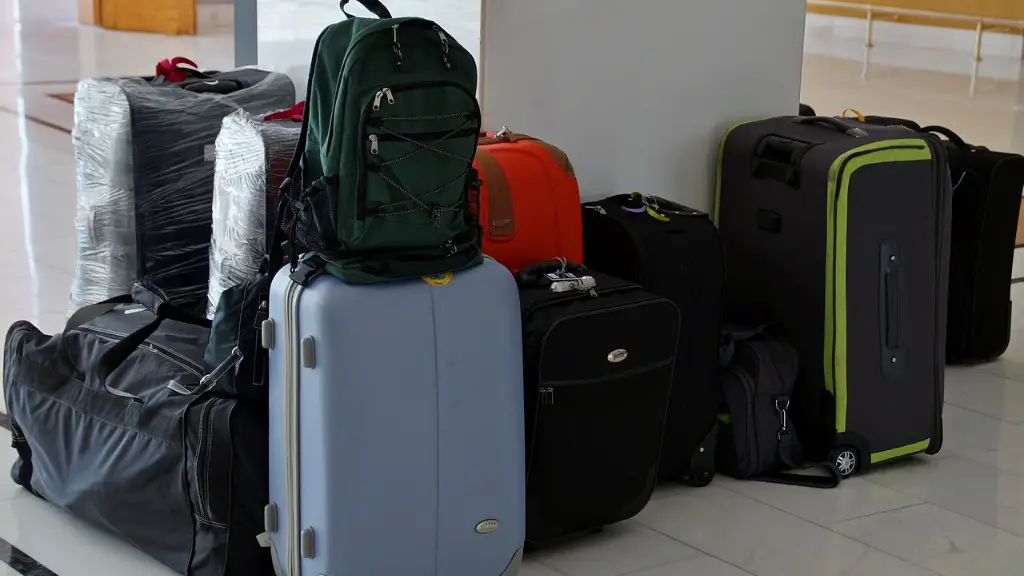No, you don’t have to insure a travel trailer. However, most people choose to because it protects their investment. Insurance can help cover the cost of repairs if the trailer is damaged in an accident.
There is no definitive answer, as insurance requirements vary from country to country and even from state to state. In general, though, it is a good idea to insure any vehicle that you plan to take on the road, as accidents can happen anywhere at any time.
Should You Insure Your travel trailer?
If you are traveling with your travel trailer, you will need insurance to cover the trailer. Your auto insurance policy can cover the trailer under your liability coverage.
Annual insurance premiums for RVs can vary widely depending on how often the RV is used. Part-time RVers usually pay less than $1,000 per year, while full-time RVers may pay $2,000 to $3,000 per year.
What type of insurance do I need for my RV
If you own your RV, you’re only required to carry standard liability insurance, as well as personal injury protection if you live in a no-fault state. This means that if you’re in an accident and it’s your fault, your RV insurance will cover the damages to the other person’s vehicle, as well as their medical expenses. If you live in a no-fault state, your personal injury protection will cover your medical expenses regardless of who is at fault.
RV insurance may cover theft, but it depends on the types of RV insurance coverages you have. If your policy includes comprehensive coverage, theft of your RV, and internal components that were part of the RV when you purchased it, like cabinets or folding beds, may be covered.
What are the cons of owning a travel trailer?
There are a few potential downsides to owning a travel trailer that are worth considering before making a purchase. Firstly, even though travel trailers can be cheaper than buying a motorhome, they can still be a significant financial investment. Secondly, not all vehicles are able to tow a travel trailer safely, so you need to do your research to make sure your vehicle is compatible. Finally, you need to be diligent about checking your hitch and trailer lights every time you stop, as even a small problem can cause big issues on the road.
RV maintenance is essential to keeping your vehicle in good condition. You can expect to spend between $1,000 and $2,000 a year on maintenance, depending on the type of RV you have. Seasonal maintenance is also important to keep your RV running smoothly.
Can you claim a travel trailer on your taxes?
Yes, your RV can be a tax write-off, no matter how long you’ve owned it. New and used RVs are both eligible for tax deductions in many states. If your RV is your home, certain deductions may also apply.
There are a few things to consider when choosing insurance for your camping vehicle. First, you will want to make sure that the policy covers most of the potential problems that you may face while on the road. Second, if you are planning on taking long trips, you may also want to purchase travel insurance to make sure you are fully covered.
What does comprehensive insurance cover on a travel trailer
A comprehensive cover for your RV protects you from events that are beyond your control, such as theft, vandalism, fire, glass breakage, weather-related incidents, and collisions with animals. A collision cover will repair or replace your RV if it is damaged in an accident with an object or another vehicle, regardless of fault.
While your auto liability insurance covers you for accidents while driving your RV, vacation liability insurance extends your liability coverage to accidents that may occur while the RV is parked and you are on vacation or a road trip. This type of insurance is important to have in case you are involved in an accident while on vacation.
Is RV insurance the same as auto insurance?
RV insurance generally has higher liability limits than car insurance since RVs are sometimes used as an owner’s primary residence. Additionally, the cost of owning and operating an RV is often higher than a car, so this specialized insurance can help offset those costs.
Maine is the cheapest state to find RV insurance, with prices that are lower than in other states. However, they have higher sales and property taxes that may offset the savings. South Dakota also has lower insurance prices, as well as low sales tax, and no personal property taxes, making it a good option for RVers.
How do you park a trailer to avoid theft
If you’re looking to keep your trailer safe from thieves, there are a few things you can do. First, always park in a well-lit area. Look for a street light and park there. If you’re in a packed parking lot and your options are limited, it might be worth looking elsewhere for a safe place to park your trailer. Another thing you can do to annoy thieves is block your trailer with your tow vehicle. This makes it more difficult for them to get to your trailer and steal it.
If your roof starts leaking after an accident or severe weather, you may be covered by your insurance if you can prove that the leak is a result of the incident. However, if the leak develops after an accident that didn’t cause any obvious damage to the roof, you may need to provide more proof to your insurance company to get coverage.
How do you lock a trailer so it can’t be stolen?
This is how you secure a trailer to a hitch. First, you put the coupler lock over the hitch. Then, you slide the metal bar over the top of the hitch. This will keep the trailer from coming loose.
The average lifespan of a travel trailer is 10 years. However, you can prolong its longevity by taking good care of it. Some travel trailers can last up to 30 years with proper usage.
Conclusion
There is no set answer, as insurance requirements can vary depending on the country or state you are travelling in. It is advisable to check with your insurance provider to see if they offer coverage for travel trailers, and if so, what the requirements are.
Based on the research that was conducted, it appears that insurance for travel trailers is not required in all states. However, it is always advisable to check with your local DMV to find out the specific requirements for your state. Whether or not you are required to insure your travel trailer, it is always a good idea to have some form of protection in case of an accident or other unforeseen event.





